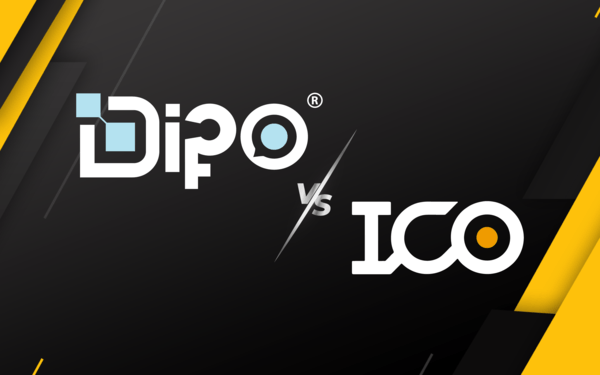The advent of blockchain technology facilitates the evolution of capital raising by expanding the number of ways early-stage start-ups can access funding. Abundant startups are spreading their ideas by conducting initial coin offerings (ICO) everyday, giving a variety of investment opportunities for investors. However, besides taking advantage of potential projects, the investors may bear the risk of investment scam losses as most ICOs are largely unregulated. This prompts the search for a more secure solution to reduce the risks: the DIPO model.
What are ICO and DIPO in general?
An initial coin offering (ICO) is the cryptocurrency industry’s equivalent to an initial public offering (IPO). It is a popular fundraising method used primarily by startups wishing to offer products and services, usually related to the cryptocurrency and blockchain space. Interested investors can buy into the offering and receive a new cryptocurrency token issued by the company. This token may have some utility in using the product or service the company is offering, or it may just represent a stake in the company or project.
DIPO (Digital Initial Private Offering) is a fundraising solution for SMBs and startups by allowing them to issue tokens on the basis of their real assets. It is a proprietary model by LiveTrade, with a registered trademark and awaiting patent from the United States Patent and Trademark Office. By applying blockchain technology, DIPO facilitates businesses and projects to raise capital easily, quickly, and economically, facilitating the focus on their key drivers: product development and repaying to users and investors.
So, what are the main differences between those models?
Although both methods share the same form of token offering, there are a few differences that make DIPO slightly one step ahead.
Strict audit and appraisal
Since ICOs do not require adherence to any regulatory framework and legal protocol, a majority of them do not have a track record and only have a whitepaper to back up their project. On the other hand, each DIPO project will go through an audit and appraisal procedure by LiveTrade’s experts and partners before being officially offered for a token sale. This also helps the startup to enhance the projects’ potentials with consultancy from the experts. Besides, the project’s owners have to not only show their clear and straightforward ideas but also prove their business performance by providing sufficient profiles and relevant documents. This rigorous process aims at minimizing risks for investors compared to conventional ICO projects.
Core team traceable
ICOs are usually initiated by new teams with abstract ideas rather than backed up by real businesses. Investors may have little or no information about the core team of the project they want to invest in. Many scammers take this loophole to lure people into bogus investment opportunities. Since October 2020, reports to the FTC’s Consumer Sentinel have skyrocketed, with nearly 7,000 people reporting losses of more than $80 million on these scams. Unlike ICO, the underlying token of any DIPO project raises money for an already existing business, which helps investors acquire the information of the team and how the business is working. Investors are provided with a more solid base to assess competence and reliability as they can track details about the team history and information related to the project.
SEC-compliance
Since ICOs are not regulated by any financial authorities, funds that are lost due to fraud or incompetence may never be recovered. On the contrary, DIPO is also a SEC-compliant fundraising model, following the strictest guidelines of LiveTrade’s operation jurisdiction. LiveTrade will also have measures to work with the project owners, thriving to support the projects in fulfilling their commitment with DIPO investors, protecting the reputation and prestige of LiveTrade and the DIPO trademark. This contributes to reducing the fraud and scam risks associated with the offering.
Conclusion
As ICO and DIPO have come to the forefront in the cryptocurrency and blockchain industries, they also bring along challenges, risks, and unforeseen opportunities. However, with a more optimized and rigorous process, DIPO is a more promising solution that provides opportunities in a secure and compliant way. More about the DIPO model at dipo.livetrade.io




